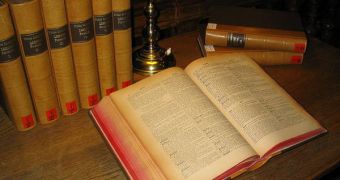Psychologists and evolutionary biologists are currently engaged in endless debates on whether stories are a byproduct of humans' highly social behavior, or if the pieces of literature are what triggered this type of behavior in the first place. Small children listening to bedtime stories grow up identifying themselves with favorite characters, while at the same time learning about virtues and good examples. But this was also valid tens of thousands of years ago, as evidenced by the fact that, as soon as technological means allowed for it, people started recording their actions and then embellishing them.
Myths and legends are, at their origins, stories that were subjected to the passing of time. Over the generations, feats in tales transmitted by word-of-mouth changed and became increasingly brave and out of this world. But psychologists wonder what the appearance of story-telling did to the human race. Was it the stories that began to draw us closer as a society, or was it the large groups in which our ancestors lived the reason why these tales appeared in the first place?
“It's also probably true that – at least I hope it is – that there's something good about the kinds of practicing in empathy that we get out of stories, especially when they're subtle,” Brandeis University English Professor William Flesch said, as quoted by LiveScience. “As far as we can tell, humans are the only species that create and occupy imaginative worlds, use it to regulate their behavior, activate their decision-making. It has co-evolved with human capacity for greater cognitive flexibility and for forming social groups,” University of Missouri-St. Louis English Professor Joseph Carroll added.
“I don't think [stories are] an adaptation: I think they're more a reflection of our intense pro-social disposition and they appeal to that disposition, which makes them particularly appropriate for social interaction,” Flesch shared. For a long time, researchers have noticed that people reading novels or stories tend to identify themselves with the positive characters and to feel a certain sense of satisfaction when the bad guys get their punishment. Could this be one of the factors that ensured human cooperation since our dawn as a race?

 14 DAY TRIAL //
14 DAY TRIAL //